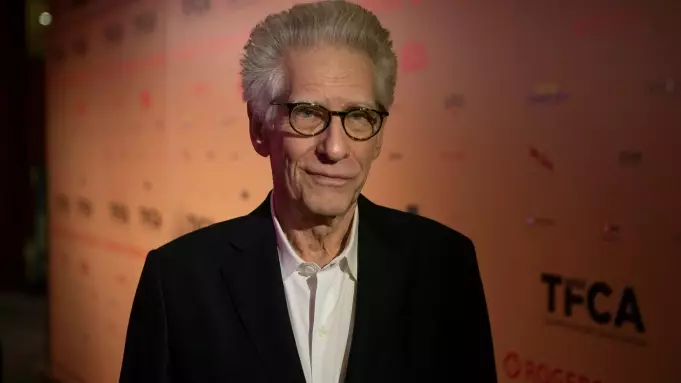The recent controversy surrounding *The Brutalist* and its utilization of AI technology has ignited a firestorm of debate within the cinematic community. This media frenzy denotes a troubling trend where innovations in filmmaking often face unwarranted scrutiny, overshadowed by the complexities of the award season. David Cronenberg’s defense of the film underscores this; he posits that what amounts to a “campaign against” the movie, reminiscent of historic smear tactics in Hollywood, has unfairly positioned AI as the villain. It’s time we reassess the role of AI in filmmaking and recognize it for what it is: a potent tool rather than a menace.
Creative Limitations vs. Creative Enhancements
In an art form as collaborative as filmmaking, each layer of the final product emerges from numerous inputs and changes, often rendered invisible to the audience. Cronenberg’s comments about manipulating actor voices illustrate a fundamental reality: artistry has long employed technological enhancements. From background score adjustments to audio pitch alterations, such practices are ingrained in the cinematic process. The concern isn’t about AI displacing artistry; it is about harnessing technology to bridge creative gaps. Are we not better off discussing how AI can augment our capabilities rather than fear it as a replacement for human talent?
Rethinking the Dialogue on AI
Editor Dávid Jancsó’s remarks about the challenges of capturing authentic Hungarian dialogue underline a potential bias against AI in the industry. The backlash appears rooted not just in fear but also a deep-seated inefficiency within filmmaking practices. AI systems like the one provided by Respeecher allow filmmakers to bypass hurdles that might otherwise impede storytelling. When directors and their teams articulate their methodologies and the advantages AI offers, we ought to listen rather than immediately undermine their efforts as mere gimmicks.
Preserving Authenticity While Embracing Innovation
The crux of the matter boils down to the balance between innovation and authenticity. Critics of *The Brutalist* seem to overlook the film’s overarching intention: to portray a nuanced story that resonates across languages and cultures. The technology allows for a deeper level of immersion, thereby enriching the cinematic experience rather than detracting from it. The claim that AI tarnishes the authenticity of performances raises concerns over our understanding of artistry within the realms of modern storytelling.
AI as a Tool for Equality in Filmmaking
In an industry rife with disparities—whether in terms of budget constraints, skill levels, or representation—AI can level the playing field. It opens up avenues for nuanced expression that might be inaccessible to smaller independent filmmakers, enabling them to craft thoughtfully sound films without astronomical costs. Instead of viewing AI as a solution to incompetence, let’s reframe our perspective to see it as an equalizer, a means to ensure that diverse stories find their voice in a crowded marketplace.
In essence, the conversation about AI in filmmaking should transcend the sensationalism that comes with controversy. Embracing this technology as a complement to human creativity may well lead to a new renaissance in the art of storytelling.

